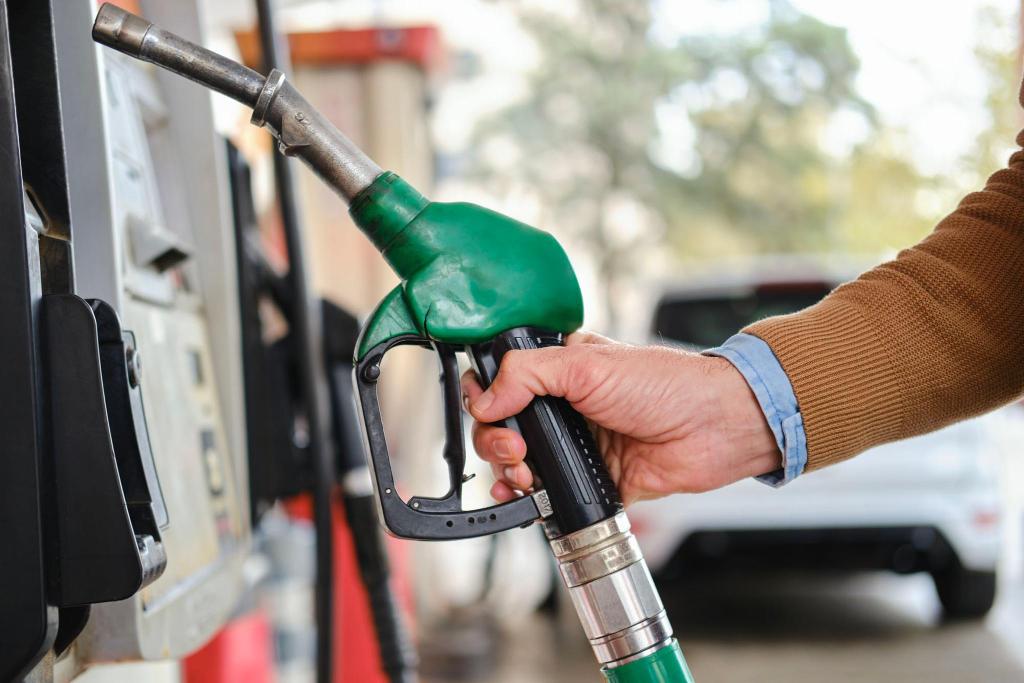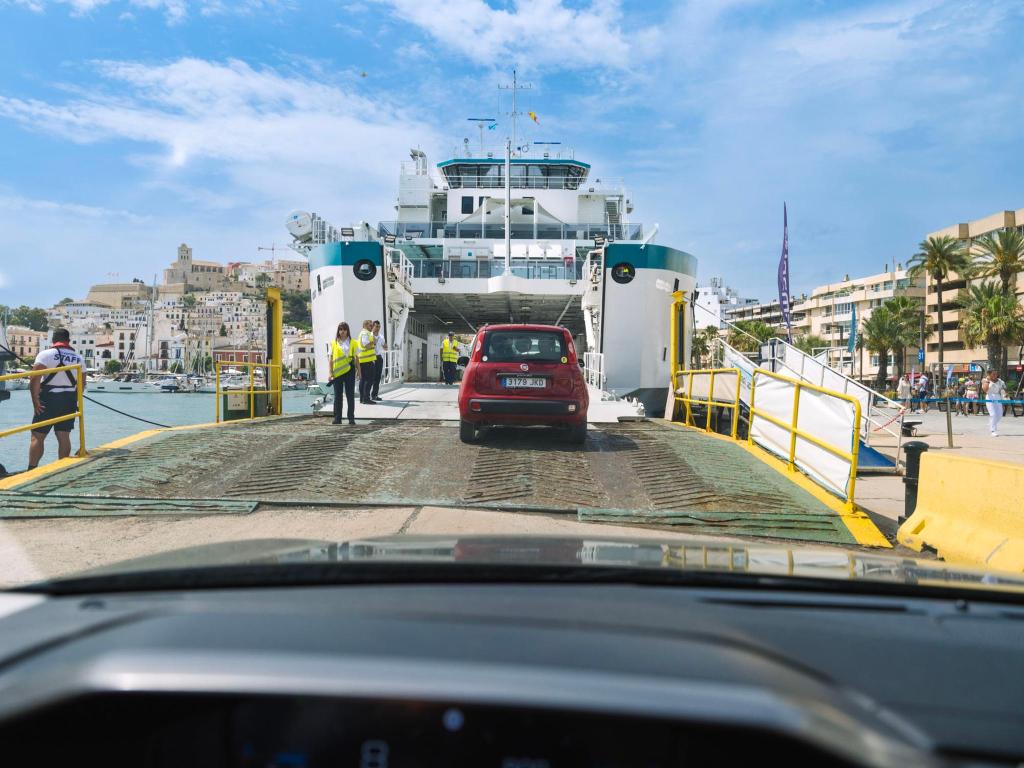
What Is a Fuel Policy?
Learn about rental car fuel policies and find out everything from full-to-full to prepaid options. Check out:
- How full your rental car's tank should be at pickup and return.
- Why you should document your fuel level with photos.
- How electric and hybrid vehicles have special requirements, including minimum battery charge levels.
What is a fuel policy? A fuel policy is the agreement between you and your rental car company about how to handle fuel during your rental period. It specifies how full the tank should be when you pick up and return the vehicle, and outlines any associated fees or requirements. Understanding your fuel policy helps avoid unexpected charges and ensures a smoother rental experience.
How can understanding my fuel policy help me?

Understanding your fuel policy in advance helps you plan your budget more effectively and avoid surprise charges at the end of your rental. It ensures you can choose the most cost-effective option for your trip while saving time during vehicle return. Most importantly, it helps prevent disputes about fuel levels with the rental company.
What sort of fuel policies are there?
Different rental companies offer various fuel policies, each suited to different travel needs:
- Full-to-full: you receive the car with a full tank and return it with a full tank. You pay for the fuel you use at market prices. This is typically the most flexible and economical option. Remember to keep fuel receipts as proof of refueling.
- Full-to-empty (pre-paid): you pay for a full tank upfront, often at a slightly reduced rate, and can return the car with any amount of fuel. While convenient for long trips, you don't receive credit for unused fuel. This usually costs more unless you return the car nearly empty.
- Same-to-same: return the car with the same fuel level as pickup. The fuel level is marked on your rental agreement, and this option is common for shorter rentals or if the rental company didn’t top-off your car after a previous rental. Take a photo of the fuel gauge at pickup for reference.
- Quarter tank policy: popular in some Asian countries, the car comes with and should be returned with a quarter tank. While less common in North America and Europe, this option can be helpful for short city rentals.
What fuel policy does my rental car have?

To identify your fuel policy, check your rental confirmation email and review the rental agreement before signing. Ask the counter agent to explain the policy if anything is unclear.
Important documentation tips
Proper documentation of your fuel levels and purchases helps protect you from potential disputes and unexpected charges.
- Take clear photos of the fuel gauge at pickup and dropoff
- Keep all fuel receipts from your final refuel
- Note the location of gas stations near the return location
Which fuel policy is right for my rental?
pg_image: “3 Which fuel policy is right for my rental.jpg ”
Consider the factors below when choosing a fuel policy.
- Full-to-full: works best when you're comfortable finding local gas stations and your schedule allows time for refueling. It's ideal for travelers who want to pay market rates for fuel and prefer maximum flexibility.
- Pre-paid fuel: makes sense if you're likely to use a full tank or have an early flight. Choose this option when convenience matters more than finding the lowest fuel price.
- Same-to-same: isn’t something you’ll typically choose – it’s something that the car rental company will give you if your vehicle isn’t already full. Full-to-full is a type of same-to-same.
Special considerations for electric and hybrid vehicles

Electric and hybrid vehicles have unique "fuel" policies.
- Pure electric vehicles: most rental companies require a minimum charge level at return. Some locations offer free charging, while others charge a flat rate for electricity. Always document the starting battery percentage and double check your rental agreement for specifics.
- Plug-in hybrids: follow standard fuel policy for the gas tank and note any additional requirements for battery charge. Check if charging cables are included and which charging networks are compatible with your rental.
- Cost considerations: electric charging costs vary for a full charge, though rates vary significantly by location and provider. Some rental locations offer complimentary charging, so factor this into your decision.
International fuel policy variations

When renting abroad, fuel policies may differ by country, and some regions may require prepayment. Be aware that fuel grades and types vary internationally, as do documentation requirements. Measurement units might also be different (liters vs. gallons).
To save money on international rentals, research local fuel prices before booking and learn local fuel grade terminology. Understanding local payment methods for fuel can also prevent unnecessary stress during your trip.
Remember that the most cost-effective policy depends on your specific travel plans, destination, and comfort level with local fueling options. Always read the terms carefully and ask questions if anything is unclear.

- Odměny od leteckých společností
- Tipy týkající se letů
- Zážitkové cestování
- Luxusní cestování
- Cestování na plný úvazek
 Essential Tips for Smart Car Rental Decisions2. dubna 2025
Essential Tips for Smart Car Rental Decisions2. dubna 2025 What Is an ‘SUV’ in Car Rental?2. dubna 2025
What Is an ‘SUV’ in Car Rental?2. dubna 2025 7 Airline Business Classes Compared31. března 2025
7 Airline Business Classes Compared31. března 2025 Business Travel Tips: How to Stay Productive When Flying31. března 2025
Business Travel Tips: How to Stay Productive When Flying31. března 2025 Can I Take My Hire Car on a Ferry?28. března 2025
Can I Take My Hire Car on a Ferry?28. března 2025 Got an Unexpected Charge From Your Car Rental?28. března 2025
Got an Unexpected Charge From Your Car Rental?28. března 2025 How Can I Get the Exact Hire Car That I Want?28. března 2025
How Can I Get the Exact Hire Car That I Want?28. března 2025 How To Choose Best Economy Plane Seats for Extra Legroom28. března 2025
How To Choose Best Economy Plane Seats for Extra Legroom28. března 2025 What To Do if You’re on a Diverted Flight?28. března 2025
What To Do if You’re on a Diverted Flight?28. března 2025 What To Take With You When You Pick Up Your Rental Car28. března 2025
What To Take With You When You Pick Up Your Rental Car28. března 2025 Understanding Rental Car Fees and Charges25. února 2025
Understanding Rental Car Fees and Charges25. února 2025 How To Avoid Losing Your Rental Car Deposit18. února 2025
How To Avoid Losing Your Rental Car Deposit18. února 2025 Car Rental Reviews: How Reviews Help You14. února 2025
Car Rental Reviews: How Reviews Help You14. února 2025 Tips for Returning Your Rental Car if the Counter is Closed30. prosince 2024
Tips for Returning Your Rental Car if the Counter is Closed30. prosince 2024 How to Travel with Bikes in a Rental Car: FAQs29. prosince 2024
How to Travel with Bikes in a Rental Car: FAQs29. prosince 2024 5-Minute Guide: Driving in the US28. prosince 2024
5-Minute Guide: Driving in the US28. prosince 2024 7 Easy Ways to Save Money on Car Rental27. prosince 2024
7 Easy Ways to Save Money on Car Rental27. prosince 2024 How to Rent a Car for Your Ski Trip27. prosince 2024
How to Rent a Car for Your Ski Trip27. prosince 2024 The Complete Guide To Airline Food27. prosince 2024
The Complete Guide To Airline Food27. prosince 2024 How Old Do You Have to Be to Rent a Car?26. prosince 2024
How Old Do You Have to Be to Rent a Car?26. prosince 2024 What is a Layover? A Complete Guide: Here’s What to Expect24. listopadu 2024
What is a Layover? A Complete Guide: Here’s What to Expect24. listopadu 2024 How to Get into an Airport Lounge – Expert tips and Advice24. července 2024
How to Get into an Airport Lounge – Expert tips and Advice24. července 2024 Standby Flights: What are They, and How do They Work?24. července 2024
Standby Flights: What are They, and How do They Work?24. července 2024
Mohlo by se vám také líbit
Learn more about the types of rental cars available when planning a vacation.
Your complete guide to understanding car rental fees, policies and optional add-ons to help you make informed choices.
Avoid common car rental pitfalls with our guide to the top 10 rental fails. Learn why people don't get their hire cars and how to ensure a smooth pickup.
Planning to choose an 'SUV' for your next rental? Get a clearer view of what an 'SUV' is with our handy guide.
How to avoid additional GPS/Sat Nav costs by using offline maps during your rental period.
Can I take my hire car on a ferry? Find out how to travel on a ferry with rental cars, the costs and ferry regulations for rental cars.








